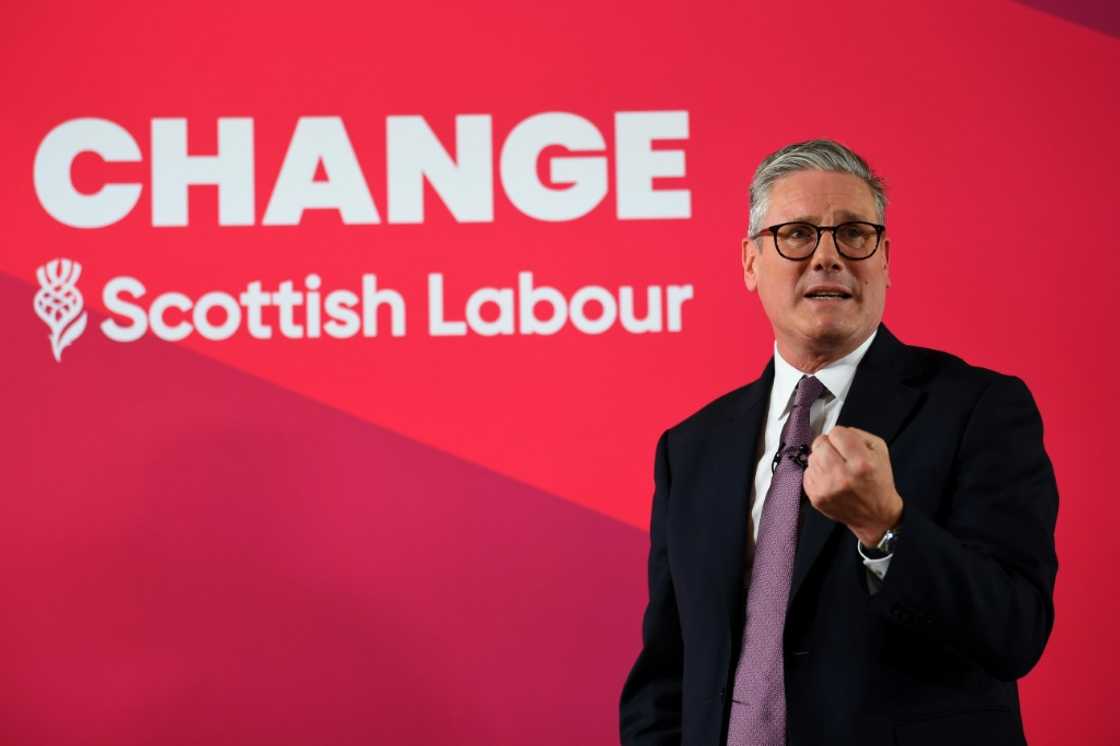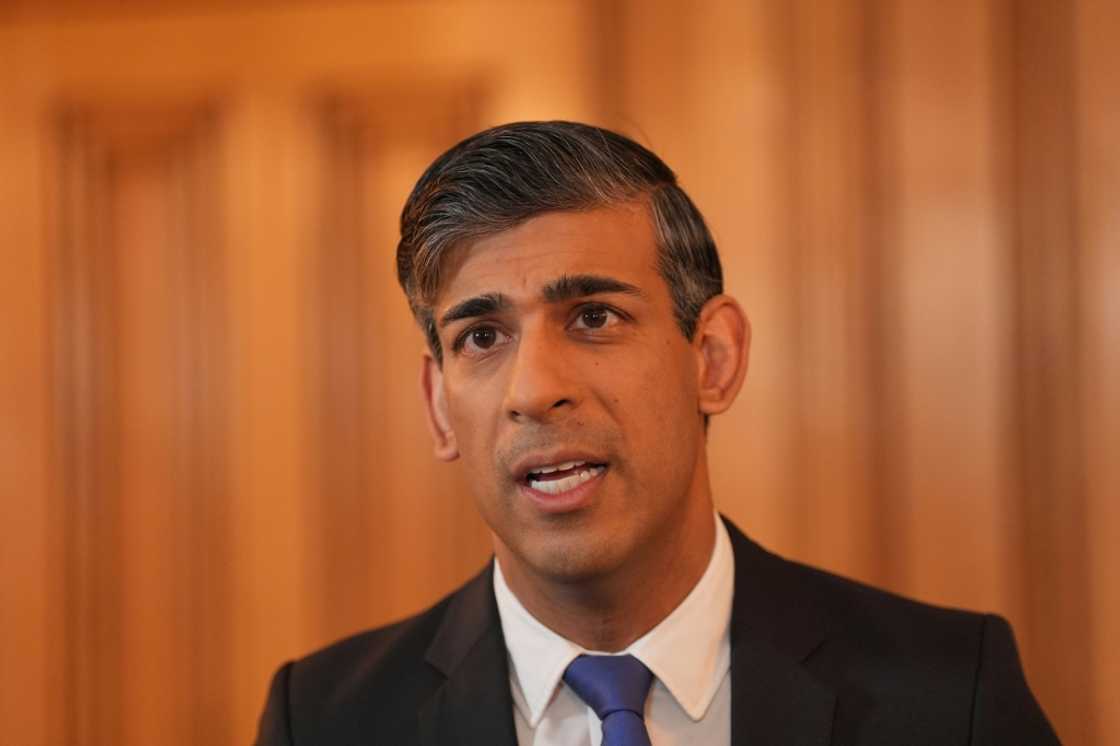UK Labour pitches new energy policy in election battle

Source: AFP
The UK's Labour opposition launched its flagship clean energy policy Friday, bidding to ease the country's cost-of-living crisis and contrast the party with the ruling Conservatives in the looming general election.
Campaigning in Scotland, Labour leader Keir Starmer detailed plans for a publicly-owned "investment vehicle", called Great British Energy, to spearhead funding for green energy projects.
The new Scotland-based entity, which he vowed to create "very quickly" if the party wins power on July 4, will try to reduce household energy bills, create jobs and drive the UK's energy transition towards net zero.
The policy was promptly slammed by Conservative Prime Minister Rishi Sunak as "incoherent" and unable to deliver energy security.
The two leaders will face off in the campaign's first debate on Tuesday. Broadcaster ITV announced Friday a second debate featuring all seven main party leaders will also be held on June 13.
Labour is widely predicted to win the election, opinion polls show, with Sunak's Tories struggling after years of scandals and cost-of-living pressures.
Announcing the energy policy, Starmer sought to counter claims that Labour's pledge not to issue new oil and gas drilling licenses in the North Sea will prompt large-scale job losses.
"We're not turning off the taps, we're not revoking the licences, and oil and gas is part of the mix for decades to come," he said at an event in Greenock, near Glasgow.
"There will be new jobs, tens of thousands of new jobs, created by the transition to renewable energy, and by locating GB Energy in Scotland, it makes Scotland the centre of that."
'Completely unachievable'?

Source: AFP
Starmer earlier told BBC radio that a Labour government will borrow £8 billion ($10.6 billion) to inject into the entity, while private investors will be sought for up to three times that amount.
Labour has also said funding will come through a "proper" windfall tax on oil and gas companies.
Labour says GB Energy will invest in domestic power sources, securing energy supplies and lowering electricity and gas prices that rocketed after key producer Russia's 2022 invasion of Ukraine.
It will initially invest in wind, solar and other projects, bidding to make Scotland a world leader in new technologies like floating offshore wind, hydrogen, and carbon capture and storage.
The party argues the plans will lower energy bills and curb reliance on foreign, sometimes hostile, producers such as Russia, with taxpayers reaping some of the sector's profits.
Sunak said the plans were "completely unachievable".
"My view is we have to prioritise this country's energy security, that's why we'll continue to support Britain's North Sea energy industry," he said, noting his government supports further oil and gas exploration.
The UK has vowed to reduce its greenhouse gas emissions to net zero by 2050, but experts have warned of "worryingly slow" recent progress.
Sunak has faced criticism for a series of climate policy U-turns seen as setting back efforts.
Labour's own commitment to the benchmark has been doubted after Starmer ditched a pledge to spend £28 billion a year on green infrastructure.
He insisted Friday the party's policies will ensure the 2050 target is hit and criticised his Tory rival's approach.
"The worst thing we could do now is do what Rishi Sunak is doing, and put our head in the sand," Starmer said.
PAY ATTENTION: Stay informed and follow us on Google News!
Source: AFP




